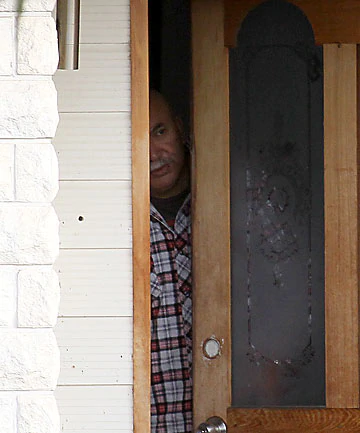Alibaba’s wealth of counterfeit products a concern to some potential IPO investors
HONG KONG — At first glance, the Monster Tron T1 headphones sold on Chinese e-commerce giant Alibaba’s Taobao site are a tempting offer for audiophiles looking for state-of-the-art hi-fi equipment.
But sellers omit one key detail: Monster never produced this model.
“There should be none in existence but our prototypes,” said Dave Tognotti, general manager of the Brisbane company best known for its audio-visual cables. He said Monster went so far as to announce a launch date but the design proved too complex to build to the company’s quality specifications, so it was abandoned.
“You can understand our surprise when we started to see counterfeit versions of this product appearing on websites like Alibaba.com, Aliexpress.com, 1688.com and Taobao.com,” he said. All four sites are part of Alibaba Group. Tognotti said that 99.5 percent of purported Monster products sold on Alibaba sites are fakes, based on thousands of listings the company’s investigators have examined over the years.
http://world.einnews.com/article/206686075/mKk4CdnjkQBGs8f_?n=1&code=AgcfkaVftQFfz4kH
Lear MoreAssam sees rise in economic offences
GUWAHATI: White collar crimes and economic offences are on the rise in the state. In 2013, the number of cases related to cheating and economic offences was more than 3,500.
These offences were mostly fraud cases by dubious non-banking financial companies, fake recruitment agencies and real estate dealers, forging of signature, certificates and stamp papers. The state police and other government agencies seem to have completely failed to control the menace that has led to unchecked flow of fake currencies in the state. According to police records, at least 2,321 cases of cheating, 1,432 criminal breach of trust (CBT) and 85 counterfeiting cases were registered last year.
Lear More
Rising tobacco taxes ‘will encourage cigarette smuggling’, say Qld experts
Australia is poised to become a more lucrative market for illicit tobacco traders, experts say. A team of researchers from Queensland says smuggling is a comparatively low-risk criminal activity, and that the regular price hikes for legal cigarettes will boost the demand for black market tobacco in Australia. Last August, the Labor government set in motion a series of tobacco tax increases of 12.5 per cent each year for four years, commencing December 2013.
Lear More
$30 Million In Counterfeit Goods Seized In Lawrence Flea Market Raid
BOSTON (AP) — A recent flea market raid racked up more than $30 million in knock-off apparel and electronics, making it the largest counterfeit bust in Massachusetts, authorities said.
Authorities confiscated enough fake designer purses, clothing and pirated DVDs and CDs from two flea markets on May 10 to fill three tractor trailers, U.S. Immigration and Customs Enforcement said Thursday.
Local businesses told police in January that illegal items were being sold at the flea markets, which have been open for years, said Lawrence interim Police Chief James Fitzpatrick.
“We didn’t expect it to be this wide-ranging,” he said. “We expected a couple dozen vendors, but I think they were ramping up for Mother’s Day.”
http://world.einnews.com/article/206236189/CscDWmkh6RkaTULh?n=1&code=AgcfkaVftQFfz4kH
Lear More
Prison guard denies smuggling charge
A long-serving Corrections officer has denied smuggling tobacco into Christchurch Men’s Prison. Raymond Heperi Harris, 60, resigned from his job in May last year after he was confronted with allegations he was supplying contraband to prisoners in exchange for cash. Corrections investigated and lodged a complaint with police. Harris was eventually charged with taking tobacco into the prison with the intention of giving it to inmates. The alleged offence is a breach of the Corrections Act. If found guilty Harris could be jailed for up to 3 months and fined $5000. This morning, a Christchurch District Court spokeswoman said Harris had plead not guilty to the charge.
http://www.stuff.co.nz/national/crime/10068094/Prison-guard-denies-smuggling-charge
Lear More
Gibraltar row: Spain hits back
Following rising tensions between Spain and the UK over Gibraltar the Spanish Government has hit back by accusing Britain of failing to tackle the sharp rise in tobacco smuggling at the border.
In a statement Spain’s Ministry of Foreign Affairs also said that cooperation with law enforcement agencies in Gibraltar has deteriorated. The criticism comes just a day after UK Europe Minister David Lidington denounced continued delays at the border and urged Spain to act on EC recommendations. Spain’s Jose Manuel García-Margallo claimed that tobacco seizures at the border with Gibraltar have increased 213% between 2010 and 2013. Reportedly, 97,146 cartons were seized in 2013 and the trend has continued this year, with 13, 781 cartons confiscated in the first two months of 2014.
https://www.euroweeklynews.com/news/gibraltar/item/120646-gibraltar-row-spain-hits-back
Lear MoreFCC says California website offered fake Samsung and BlackBerry phones
A California website has been selling fake phones that came with seemingly legitimate “FCC Identifiers,” but ones that were were not authorized by Samsung. An online retailer, Panaystem, marketed counterfeit versions of the “Galaxy S Duos” and “Galaxy Ace” and the BlackBerry model 9790, according to the enforcement wing of the Federal Communications Commission.
In a Tuesday announcement, the FCC claimed the devices offered by the California website contain bogus FCC identifiers — unique numbers that device makers must use to show their products meet technical specifications.
http://gigaom.com/2014/05/20/fcc-says-california-website-offered-fake-samsung-and-blackberry-phones/
Lear MoreGibraltar: Spain hits back at UK accusing the Rock of increased tobacco smuggling
The Spanish Government has accused Britain of failing to tackle a sharp rise in tobacco smuggling at the border. In a statement marking the six-month deadline set by the European Commission following its visit last year, Spain also said that cooperation with law enforcement agencies in Gibraltar had deteriorated.
The statement by the Spanish Ministry for Foreign Affairs came a day after UK Europe Minister David Lidington denounced continued delays at the border and urged Spain to act on the EC recommendations. Spain has established, over the past few months, that the United Kingdom has to adopt the necessary measures to tackle smuggling,” the Spanish statement said. Cooperation with local Gibraltarian authorities, far from improving, unfortunately appears to be worsening.”
Lear More
Namibia: Police Seize N$14 Million Fake Goods
COUNTERFEIT goods worth N$14,5 million were confiscated by Windhoek police recently during a three-day operation code named ‘Wipe Out’, which targeted certain shops and individuals. Police spokesperson deputy Commissioner Edwin Kanguatjivi said 41 376 imitation items of different well-known brands like Nike, Puma, Adidas, Leviss and Samsung were seized, while 20 detention notices were issued to suspects. Officials from the Interpol bureau, Ministries of Finance, Home Affairs and representatives of the Namibian Society of Composers and Authors of Music (Nascam) and the private sector participated in the operation.
http://allafrica.com/stories/201405191109.html
Lear MoreLafayette Hill man charged for smuggling goods into U.S., pirating movies, TV shows
A Lafayette Hill man has been charged by indictment for smuggling goods into the United States, trafficking in counterfeit labels and criminal copyright infringement, according to a press release from the United States Department of Justice. United States Attorney Zane David Memeger announced May 19 that Brian Bethman was charged on May 15. Between April 2010 and April 2011, Bethman smuggled in more than 6,000 audiovisual copies of movies and television shows that were protected by copyright, according to the indictment. The press release says the television shows included, but were not limited to: “House,” “Criminal Minds,” “NCIS,” “Weeds,” “The Office” and “Royal Pains”; the movies included, but were not limited to: “Justfied,” “The Pacific,” “Dead Like Me” and “Bambi.”
http://www.montgomerynews.com/articles/2014/05/19/colonial_news/news/doc537a801608249078737064.txt
Lear More


